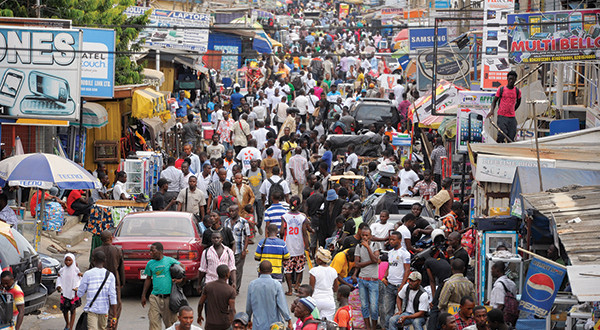Ghana’s population experts are warning of dire consequences for the country’s growth if families are not made to have liner family size.
That means couples would have to give birth to just a few children, a number they can effectively cater for as the population reaches 29 million with a birth growth rate of 2.5 percent every year.
Ghana’s current population of 29 million according to Ghana statistical service officials is an increase from 24 million in 2010.
It’s not the population figure that worries Ghanaian officials but the lack of resources to cater for them. It has forced the country’s national population council to launch a campaign for families to reduce the number of children they give birth to.
Leticia Adelaide Appiah who heads Ghana’s population council said the increasing population figure should scare Ghana as it is becoming difficult to enhance the living standards of citizens. Birth control according to her is the solution to this issue.
“Look at a family for instance, I have three girls, I don’t think that on my salary if I had six girls, they would have been where they are and I would also be where I am, No. Quality will surely be compromised. Everybody would be stressed out. Compared to a family where you have a mother, father and few children. You have to plan for the number of children you can comfortable take care of. You go round the shore, they are selling children. I think it’s an indictment on the country, which means that the people really didn’t need the children,” Appiah said
Appiah is unable to give exact number of children every couple should consider but said families should plan for lesser numbers based on their resources.
Ghana attained middle-income country status in 2010 and has made oil discoveries since. The country’s economic growth rate of 7 percent annually since 2005, hasn’t significantly addressed issues of poverty.
The statistical service says in its recent living standard report that poverty still remains prevalent due to inequalities.
Chorkor is one of Ghana’s impoverished communities and is densely populated with birth rates extremely high as some couples as young as 18 have more than three children.
Residents in this area shared varied thoughts on the ongoing campaign to control birth rates. One resident said “There should be a law. May be they should pass a law that governs the number of children you have to give birth to.”
“Comparing our population to the number of our mineral resources it doesn’t really tally. That means the population are more than what we really have here in the country,” another resident said.
A male resident also opined that “I will actually got for laws actually, I don’t really believe in restricting humans, as to what they should do.”
“I don’t really think we should control it. Human capital is more than riches” said one other person.
But a social policy analyst, Professor Joseph Teye said Ghana could soon be overwhelmed by social vices and other threats associated with poor living conditions if the population isn’t controlled. He said many young people are being forced into illegal migration due to the population growth trend.
“If you take even a rural area, so many people are born and then you have the same face land, and therefore so many people may be even farmers they would not get access to land, and then so many of these people also move to urban areas, and so we have the high population growth, we don’t have many job opportunities for all these people. So that is another push factor,” Teye said
But a member of Ghana’s committee on employment and social welfare in its parliament doesn’t think the population is a major issue. Richard Quarshigah said the country must focus on judiciously using its vast resources to create opportunities for its populace.
“If we were to have in place, the necessary industrialization, development and technological advancement and all, where job are effectively arrested and there is no stagnation in job creation, we would not be talking about population explosion. It is because we have experienced continually, stagnation in job creation, no new jobs are being added, the existing ones are folding up,” said Quarshigah
Irrespective of the debates that have ensured, the campaign for reduced family size continue but without a law to coerce people. That means achieving set targets would be daunting as many Ghanaians are still conservative about birth control issues.
Source: Africafeeds.com



